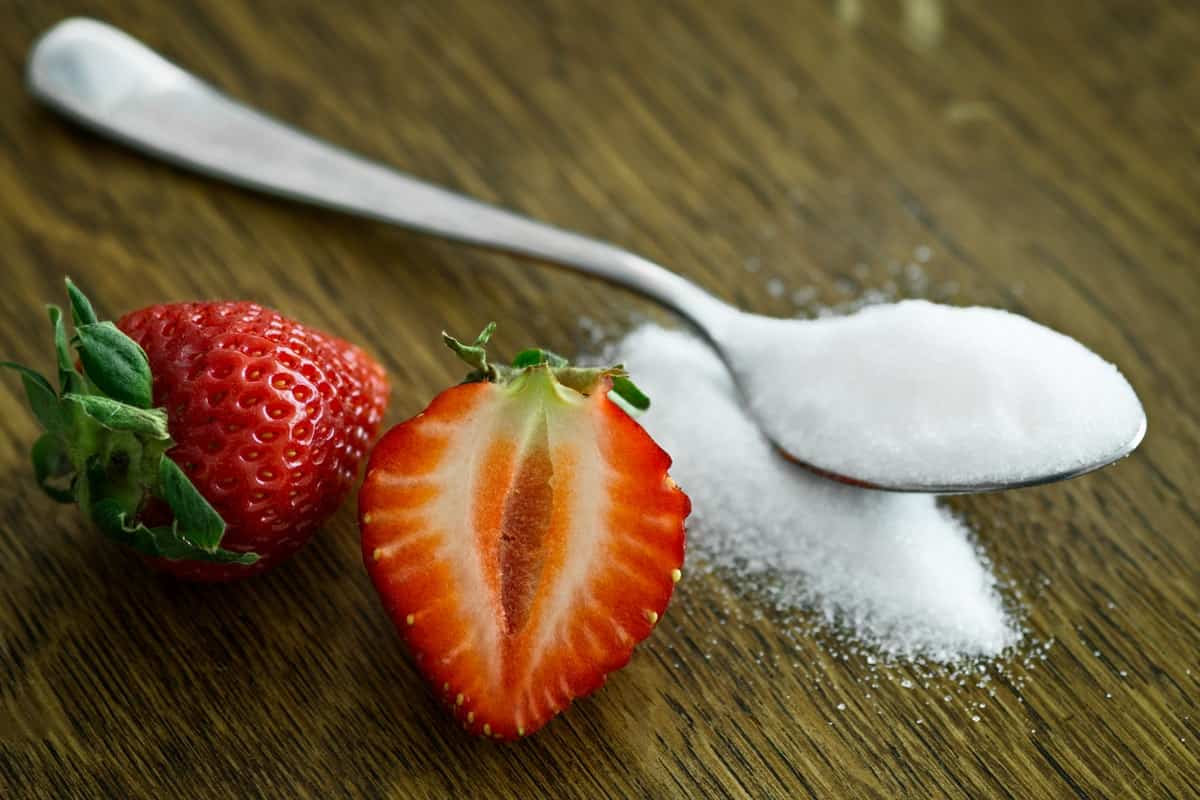

Are you looking to reduce your sugar intake? Then you’re in the right place.
Sugar is bad for you, and it’s bad for you so many reasons.
According to research, excess sugar intake puts you at a higher risk for a host of issues, such as obesity, diabetes, tooth decay, heart trouble, kidney failure, etc.
Name a health condition, and there’s a strong chance that sugar has something to do with it.
In other words, sugar is one of the worst ingredients you can put in your body. It’s also one of the most addictive substances out there—as addictive as hard drugs such as cocaine and morphine, research shows.
Now that you have some understanding of sugar’s impact on your body, what are some things that you can do to cut back on your intake? That’s where today’s post comes in handy.
Keep on reading to learn some practical ways to help reduce sugar intake without starving to death.
Sounds great?
Let’s get started.
Table of Contents
Sweetened drinks are the leading culprit behind excess sugar intake. It’s, in fact, the third-largest source of calories in the typical American diet, according to the National Institute of Health.
Your typical 12-ounce can of soda packs in roughly eight teaspoons of sugar. That’s about 130 calories from sugar alone, and all or more of the limit for added sugar in one day. It also provides little to nutrients.
And liquid sugars are as bad, or even worse, than other forms of junk food.
The research reported by the American Journal of Public Health demonstrated a strong link between soda intake and increased risk for obesity, diabetes, heart issues, and other health nightmares.
Instead of guzzling mountains of sugar, switch to sparkling water, unsweetened lemon tea, or black coffee. Also, make sure to drink plenty of water—it’s calorie-free and good for you.
Research shows that having junk food lying around the house makes you more likely to indulge, especially after a stressful day.
That’s why you’re better off removing sugar—in all its forms—from your living space. Out of sight, out of mind, as the saying goes.
Go through your pantries and toss away all the soda, cookies, chips, candy, ice cream, and any other junk items you got in there.
Once you remove the junk from your environment, replace it with healthier alternatives. Nature abhors a vacuum.
Healthy alternatives are particularly helpful for taming hunger pangs and soothing your sweet tooth. These can also help you get more nutrients into your body.
In general, makes sure your healthy snacks are protein- and healthy fats-rich, rich in fiber, and contain no to little grains, carbs, or sugars.
Here are some excellent options:
Your lifestyle choices also matter—especially time spent under the sheets.
According to the current theory, sleep deprivation sets you up for bad food choices by compromising your appetite hormones. It reduces the release of your fullness hormone—known as peptide while flooding your body with the hunger hormone—ghrelin.
The hormonal imbalance also impacts your will power, and compromises your decision-making mechanism, setting you up for more unhealthy food choices.
According to this British experiment, participants who improved their sleep quality experienced fewer cravings. They also reduce their sugar intake by roughly 10 grams following a night of good sleep.
Make sleep a priority by getting at least seven to nine hours per night. This should regulate your appetite hormones and reduce your cravings for the sweet stuff.
There you have it! Taking the above steps should get you a long way on your path toward reducing sugar intake. All you need to do now is to implement the changes shared above gradually. The rest is just details.
Feel free to leave your comments and questions in the section below.
In the meantime, thank you for dropping by.
Keep eating healthy.
In the relentless pursuit of entrepreneurial success, it’s easy to overlook the most vital asset—yourself.… Read More
A barrel sauna isn’t just a visually striking wellness addition—it’s an efficient and highly functional… Read More
Technology is an integral part of most teenagers' lives today. While devices and social media… Read More
LASIK is one of the most popular vision correction surgeries that offers you freedom from… Read More
Plumbing issues can arise unexpectedly, and understanding the costs involved is crucial for homeowners and… Read More
Skin aging is often associated with external factors like sun exposure and pollution, but inflammation… Read More